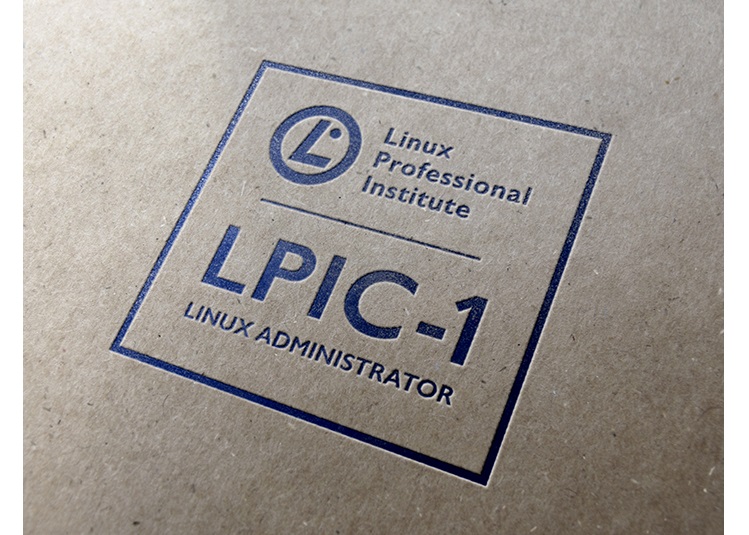Open-source software is becoming more prevalent globally, with individual users, government organizations, and industries from transportation to space exploration embracing free, open-source technologies. The use of open-source in the business world is revolutionizing traditional Information and Communication Technology (ICT) job roles by increasing the demand for Linux knowledge.
In fact, 100% of the world’s top 500 supercomputers ran on Linux in 2021, and so did 96.3% of the world’s top 1 million servers. Moreover, 23 out of the top 25 websites are also using Linux, as well as 90% of the entire cloud infrastructure. The same goes for many national and international banks, companies, governments, and military departments. Every major space program also uses Linux, while 90% of Hollywood’s special effects are made on it. It’s also important to point out that 36.7% of all websites use Linux, while 54.1% of professional developers used Linux as a platform in 2019.
The Linux Essentials certification is a great way to validate your knowledge of Linux and prove that you have the skills necessary for an entry-level IT career. The certification covers a variety of topics, including system administration, networking, and security. Earning this certificate can help you in many different job roles, such as system administrator, network administrator, and security analyst. The Linux Essentials certification is well worth the investment!
What Is The Linux Essentials Certification?
Linux is not only for IT specialists. There are several other professionals who can profit from what the Operating System has to offer in every area, including system administrators looking to get started with Linux and non-administrators. Linux users who want to know what the platform has to offer, instructors wishing to teach on non-commercial operating systems, developers wanting to develop new and unique applications, and those looking for employment in the DevOps market are among them.
The Linux Essentials certification is a globally-recognized, entry-level Linux certification covering system administration, networking, and security. Earning this certificate proves that you have the essential skills necessary for an IT career in Linux. The Linux Professional Institute (LPI) has introduced the Linux Essentials certification, aimed at those in schools and colleges and professors and novices who want to get started with Linux. The exam version will be 1.6, and it will be administered under code number
010-160.
The Linux Essentials credential is an excellent foundation for learning more about the Linux Professional track, which includes a more in-depth study of core concepts.
What Skills Does the Linux Essentials Certificate Validate?
The
Linux Essentials certificate, like any other IT certification, validates the skills that are required for a specific job role. If you want to get started with Linux and learn about the Operating System’s basic features, this is for you.
◉ It will help you understand how to use GNU/Linux in business as an IT professional or user.
◉ It also covers core topics such as working on the command-line (CLI).
◉ Creating and editing text files with Vim.
◉ Configuring local hardware via graphical tools and CLI commands.
◉ Running simple shell scripts using Bash under Unix/Linux systems operating environments.
◉ Knowledge of open-source software in the workplace, as well as their proprietary counterparts.
◉ A basic understanding of computer hardware, operations, programs, and the Linux operating system’s components.
◉ How to use the command line and with files.
◉ How to create and restore compressed archives and backups.
◉ System security in the form of users and file permissions for both public and private directories.
◉ Creating and running simple scripts.
Additionally, it explores the basics of networking, including working with Ethernet and wireless connections.
The Linux Essentials certificate validates the essential skills required for an IT career in Linux. These skills can be applied in a business setting and a home environment. The certification is globally-recognized and helps you enter into the world of IT with a foundational knowledge of GNU/Linux that you can build on.
Earning this credential also gives you access to exclusive resources, such as member discounts, LPI’s online community, and more.
The Benefits of Earning the Linux Essentials Certification
The Linux Essentials certification is a great way to validate your skills and knowledge in the Linux operating system. This certification can help you pursue a career in IT or enhance your current job role. The benefits of earning this certificate include:
- Validation of your skills and knowledge in Linux – The Linux Essential Credential is a vendor-neutral certification that validates your knowledge and skills in Linux. The Linux Essentials exam comprises of multiple-choice questions testing on different basic areas, including:
- Software Management
- Networking Services and Architecture
- Operating System Basics
- File, User, Group Administration
- Security Management
- Improved job prospects – This credential opens the doors to many different job roles in the IT industry. Linux is a popular operating system, and most companies are looking for employees with experience or knowledge in this system. Earning the Linux Essentials certification can help improve your job prospects and give you an edge over other candidates.
- Increased earning potential – Linux professionals are in high demand, and companies are willing to pay a premium for employees with Linux skills. Earning the Linux Essentials certification can help you increase your earning potential and get a better salary in the IT industry.
- Opportunity to learn from industry experts – The Linux Essentials certification is offered through the CompTIA Association. This means that you have access to various resources, including training materials and expert advice.
- Access to exclusive resources and discounts – As a Linux Essentials certified professional, you can access exclusive resources and discounts from CompTIA. These resources can help you continue learning about Linux and stay current on the latest trends and technologies.
Source: mycomputercareer.edu







